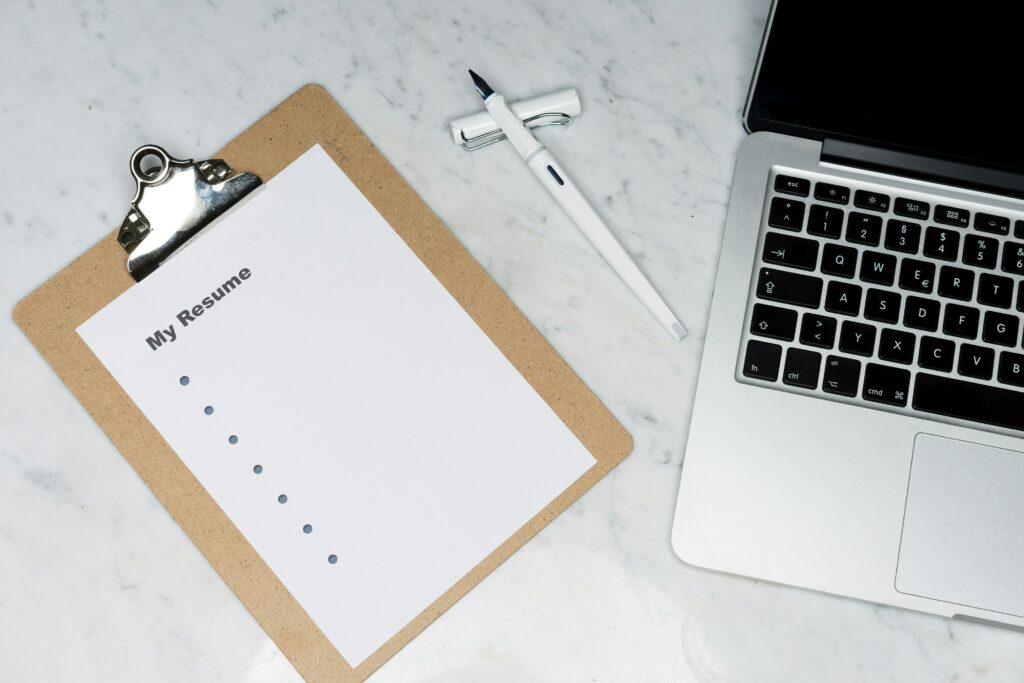So you’re considering working as a nanny in Berlin? That’s great news! Like any job in Germany, however, there are a few bureaucratic things you’ll want to take care of before you get started. Some families might be willing to accept you without these things, but if you’re planning on becoming a professional nanny, it’s a good idea to get them taken care of ASAP. From commonly requested items like a CV and references, to protective insurance like Haftpflicht- and Unfallversicherung, here is our list of nanny and babysitter must-have’s.
1. Visa/Working Permission
The first and most important document you’ll need to start work as a babysitter is legal working permission. If you’re not an EU citizen, this means you’ll need a visa to be a nanny in Germany. There are multiple different visas that can allow you to start working with families, such as the au pair visa, a freelance visa, a working-holiday visa, and more. If you don’t have a valid work permit, you won’t be able to work legally in Germany in any capacity—even as a nanny.
2. CV
Nannying is still a job, after all, so it shouldn’t come as a surprise that you’ll regularly be asked to provide a CV. This should be filled with the standard sections like education and experience—but be sure to highlight any and all childcare related experience front and center. If you’ve been a nanny in the past, you can detail your experience with each family. This might make your CV a bit on the long side, but that’s okay. If you’re working with an agency and they want to edit your CV a certain way, it’s always better to include more information rather than less.
Other things you might want to include could be:
- Teaching experience
- Travel experience
- Language skills
- First aid certification
- Other certifications such as Montessori
3. Führungszeugnis
“Führungszeugnis” is just the long German word for your “certificate of conduct” or your police clearance certificate. This is something you can easily obtain from the German authorities that signifies you haven’t had any criminal history here in Germany.
If you don’t have this form yet, you can easily apply for the Führungszeugnis online (note: this link is only for individuals living in Berlin). It costs €13, and will then be sent to you via email. Just remember during the application process to note that you are applying for private purposes (“für mich selbst”) as opposed to for official reasons (“gezetzlicher Vertretung”). Anyone applying for their employer or for their work is technically applying for private reasons, while the “official reasons” are generally those that have to do with German court or other legal entities.
4. Haftpflichtversicherung or Betriebshaftpflichtversicherung
If you’re living in Germany for any length of time at all, Haftpflichtversicherung is a must. In English, this would be known as personal liability insurance. While not legally required like health insurance, Haftpflichtversicherung will act as your safety net in any number of accidents that might arise.
If you cause damage to another person’s property—let’s say, you spill a cup of coffee on your employer’s white carpet—German law clearly states that you would be responsible to pay any and all damages. God forbid you are involved in an accident that causes harm to another human, the financial repercussions here can last for a lifetime. Therefore, it’s important to cover yourself with Haftpflichtversicherung.
If you plan on working in childcare long term, you should also explore Betriebshaftpflichtversicherung, specifically for caregivers. This can be specially created for you by an insurance broker to cover you in the very unique situation that you cause accidental harm to the children for which you are caring.
(It is worth nothing that Betriebhaftpflicht would not protect you in the case of negligence—only in an instance that is clearly deemed an accident).
Looking for a Haftpflichtversicherung provider that offers their information in English? Feather’s Haftpflicht policy is just €4.94 per month.
5. Unfallversicherung
So, Haftpflichtversicherung protects you in case there is damage to others, but what happens if there’s damage to yourself? This is where Unfallversicherung comes in. “Unfallversicherung” means “accident insurance.” With accident insurance, you have added protection in the event anything ever happens to you while you are working. And working with children—running around playgrounds and parks, walking through the city, and even just spending time in other peoples’ homes—you never know what kind of accidents might arise. It’s always best to protect yourself.
6. First aid certification
Probably the most obvious and yet somehow, most overlooked piece of documentation you’ll need as a babysitter. When caring for children, it’s paramount that you have an up-to-date first aid certification from a legally recognized training facility. If you’re not a German speaker, there are plenty of options for you to complete the training in or around Berlin in English. There are also online options, so you can get certified right from your own home.
The specific certification you’ll need for caring for children is called “Erste-Hilfe am Kind,” or First Aid for Children. Check this list for a few upcoming children’s first aid courses in English.
7. At least 1 reference
Most families and agencies will ask for at least one reference for younger nannies and sitters. Ideally, this should be a letter from a previous family you’ve worked with detailing your responsibilities there, how you performed your work, and some overall remarks on your time with the family. If you’re a more experienced nanny who has worked with many families in the past, then it is a good idea to have at least 2 or 3 references on hand.
When asking for references, be sure to give the parents ample time to write the letter (at least one week is pretty standard). In most cases, a digital version of the document will suffice, as long as it has a signature present. Keep this file clearly labeled and somewhere safe, as you’ll be needing it often during your application process while searching for your next family.
8. Freelance number (optional)
It’s not required to have a freelance number in order to work as a nanny. In fact, if you’re working full time or close to full time, it’s even wiser to work for a family as an employee. However, if you’re hoping to work as an occasional babysitter, many families won’t want to go through the paperwork of creating an employment contract for such short-term work. Therefore, having your freelance number and being able to write invoices can make you even more likely to be hired for these kinds of jobs. Visit iamexpat.de for more details on becoming a freelancer in Germany.
What documents do I need to work with Lighthouse Nanny?
To become a babysitter or nanny with Lighthouse Nanny, you’ll need to send proof of 1–7. If you’re only looking for nanny matching, you don’t need to have a freelance number. But if you’d like to work in any of our other services (Babysitting, Event Nannying, and Emergency Care), you’ll need a registered German freelance number, too.
Interested in working with Lighthouse Nanny? Send your CV and a short cover letter to genevieve@lighthousenanny.com.



